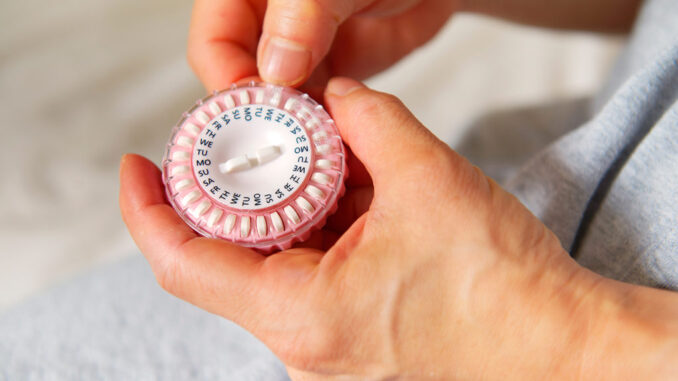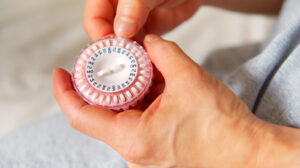
 The term hormones are biochemical that practically influence the body’s activity and functioning. They are produced in specific glands and each hormone specifically regulates a particular body function.
The term hormones are biochemical that practically influence the body’s activity and functioning. They are produced in specific glands and each hormone specifically regulates a particular body function.
Hormones play a major role in growth, reproduction, metabolism, immunity and various other functions such as regulation of the sleep cycle. Hormonal imbalance results in dysfunction. The process by which hormones maintain equilibrium is known as homeostasis.
Therapy refers to a set of skills and actively employed in an attempt to diagnose and treat malady, be it physiological or psychological in nature. That’s it with the basics. So let’s know each and every thing about Hormone Therapy, replacement and their effect.
Table of Contents
What is Hormone Therapy ?
Hormone Therapy refers to the process of reducing hormones in the body to slow or stop the growth of cancer cells. Hormone Replacement Therapy, on the other hand, is the process of increasing hormones in the body. Both, though having the same purpose of treating illness, differ in the type of illness they are intended on treating.
Hormone Therapy: Boon vs Bane
Generally, Hormone Therapy is suggested for patients suffering from the terminal disease called cancer. It is used to halt the proliferation of cancerous cells in cases of Breast Cancer and Prostate Cancer (for example). It reduces estrogen concentration in the body in the case of Breast Cancer and reduces testosterone production in case of Prostate Cancer since these hormones have been found to promote the growth of cancerous cells in a cancer patient.
Sadly the list of side-effects outweighs the benefits of Hormone Therapy.
Hormone therapy side effects
- Weight gain (due to reduced estrogen production)
- Early onset menopause (pri-menopause)
- Loss of libido and erectile dysfunction
- Osteoporosis
- Loss of body hair
- Hot flashes (characterized by a feeling of heat, sweating and a red, flushed face)
- Night Sweats
- Extreme tiredness
- Vaginal dryness (characterized by general irritation in the vaginal region and pain during intercourse)
- Mood swings
- Lack of concentration and memory
- Breast pain or enlargement
- Alzheimer’s disease
- Itchy skin
What is Hormone Replacement Therapy: Rescue or Desolation
Hormone Replacement Therapy is the exact opposite of Hormone Therapy, hence anyone can easily guess its pros and cons. It is commonly employed to provide relief during menopause and for weight-loss. As for the pros:
- Promotes weight loss (by increasing hormone concentration)
- It helps to overcome the following:
- Loss of libido and erectile dysfunction
- Osteoporosis
- Loss of body hair
- Hot flashes (characterized by a feeling of heat, sweating and a red, flushed face)
- Night sweats
- Extreme tiredness
- Vaginal dryness (characterized by general irritation in the vaginal region and pain during intercourse)
- Mood swings
- Provides relief for symptoms of menopause
- Helps control appetite
- Promotes sleep
- It helps treat itchy skin
Hormone replacement therapy side effects
Here are the top hormone replacement therapy side effects which you should not ignore. The case of hormone replacement therapy for men is also same.
- It increases the risk of cancer, particularly Breast Cancer and Uterine Cancer (if a person undergoes Hormone Replacement Therapy while possessing Uterus)
- It increases the chance of stroke, heart disease, and liver disease.
- It results in vaginal bleeding post-menopause.
- It increases the risk of blood clot.
- It results in nausea, headache, and abdominal pain.
- It causes tenderness of breast making it difficult to diagnose for Breast Cancer.
Hormone Replacement Therapy and Weight Loss
As previously discussed Hormone Replacement Therapy is generally employed to aid in weight-loss, especially after menopause.
- Testosterone inhibits abdominal fat storage in both male and female.
- Estrogen helps women control appetite and sugar cravings.
- Progesterone converts stored fat into energy.
- Human Growth Hormone (HGH) converts fat into muscle mass.
But it is not exactly a weight-loss program. Plus it only facilitates weight-loss; during menopause, the decreased estrogen and progesterone levels in the body causes the accumulation of fat, hence by increasing levels of these hormones the female body is once more capable of weight-loss. My advice is that you better try a Metabolism Booster Diet or just hit the gym.
Bioidentical Hormone Replacement Therapy and the side-effects
Bioidentical Hormones are artificial hormones designed from plant hormones that are used as a substitute for natural human hormones. Bioidentical Hormone Replacement Therapy is the latest development in the field; these are hormones that appear as and mimic natural hormones. People prefer to use hormone therapy for cancer .
They can specifically treat cancer, insulin resistance, bone disorders and adrenal and thyroid disorders. They have a lesser degree of side-effects than their predecessor. But still does not make it devoid of side-effects. Side-effects include:
- blood clots
- stroke
- gallbladder disease
- heart disease
- breast cancer
There exist preliminary side-effects, which may or may not be temporary, as the body tries to adjust to bioidentical hormones.
- acne
- bloating
- weight gain
- fatigue
- mood swings
- increased facial hair in women
Natural, Healthy Substitutes with ZERO side-effects
A study suggests that one can rely on drinking green tea and depending on herbs, it is the best natural Hormone Therapy, to fight cancer without side-effects. This is something which the Indians and Chinese established millenniums ago. It is funny how science goes a long way, only to come back to the roots!
Natural substitutes to minimize side effects Hormone Replacement Therapy include the following:
- Fish oil (which is rich in Omega-3 fatty acids) which helps strengthen bones
- Black cohosh, a medicinal herb, that helps to relieve vaginal dryness and hot flash during menopause
- Soy products (which contain phytoestrogen) which can help moderate the symptoms of menopause
- Vitamin B (in meat, eggs, veggies and dairy products) help to overcome mood swings, depression, and anxiety
- Vitamin D supplements to prevent osteoporosis
- Milk thistle (a herb that promotes homeostasis)
Conclusion
I’d advise you to not do anything unnatural unless there is no other way. The side-effects of both therapies outweigh the benefits. It’s like buying a really expensive and tasty fish which sadly has more bones than flesh. Try natural alternatives. Both therapies, no matter what any doctor says, are bound to have side-effects. There is no denying this harsh truth. Keep these therapies as the substitute; the end game; plan B.
